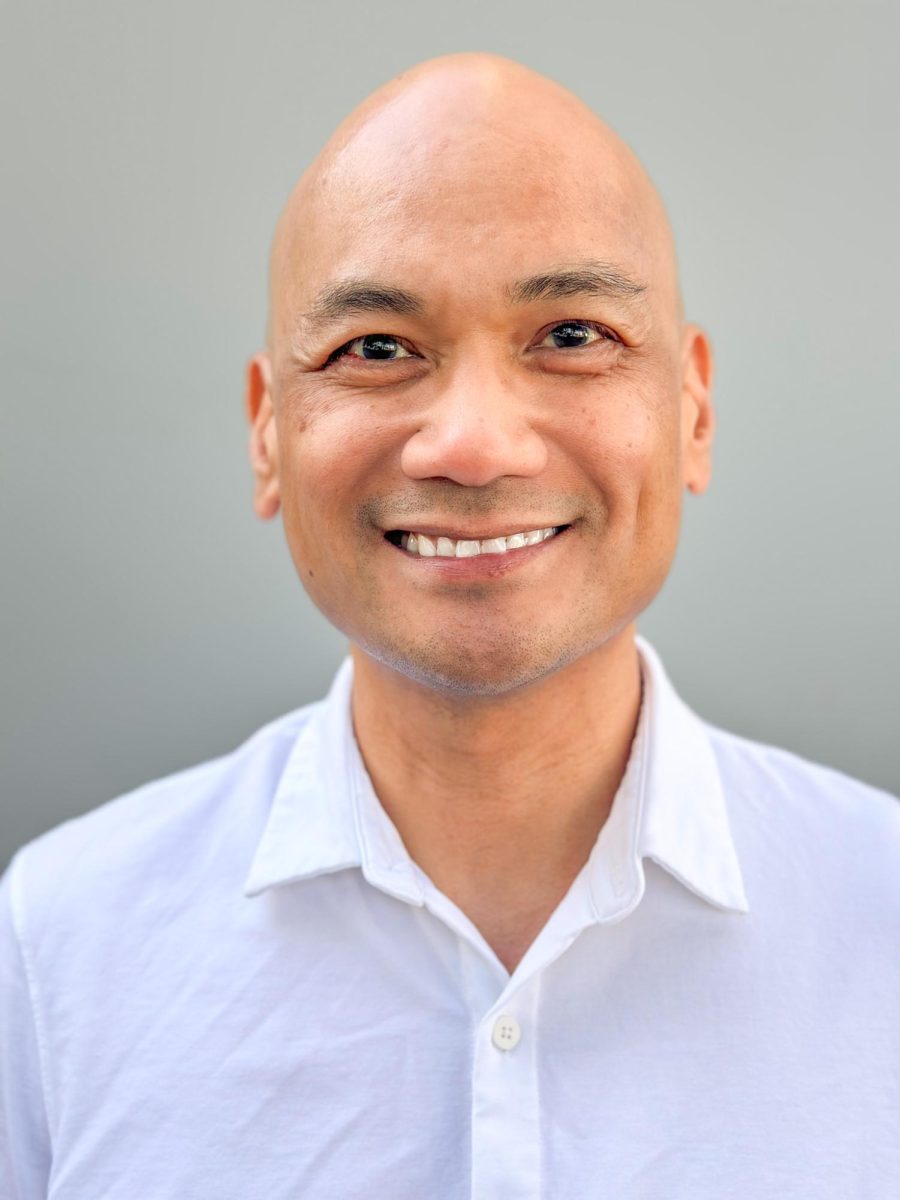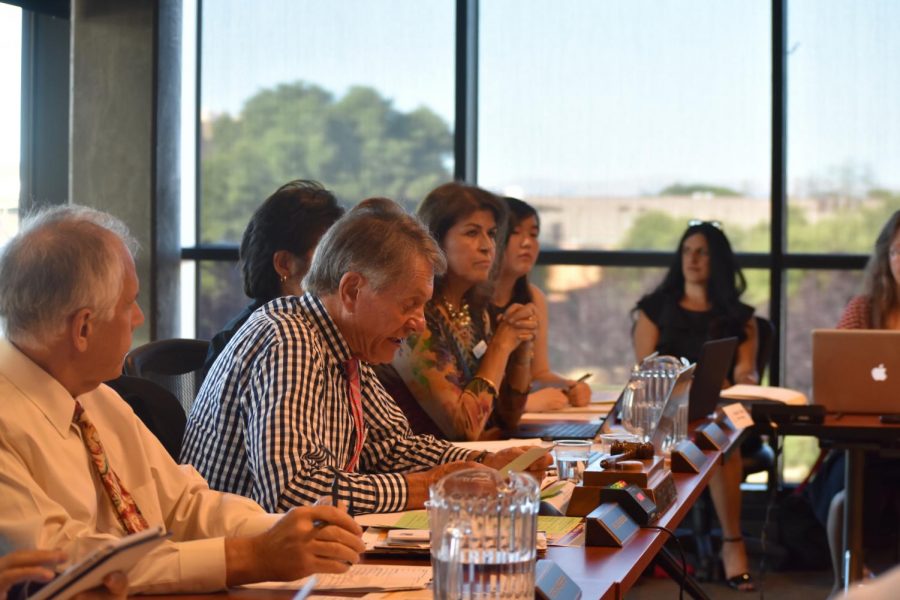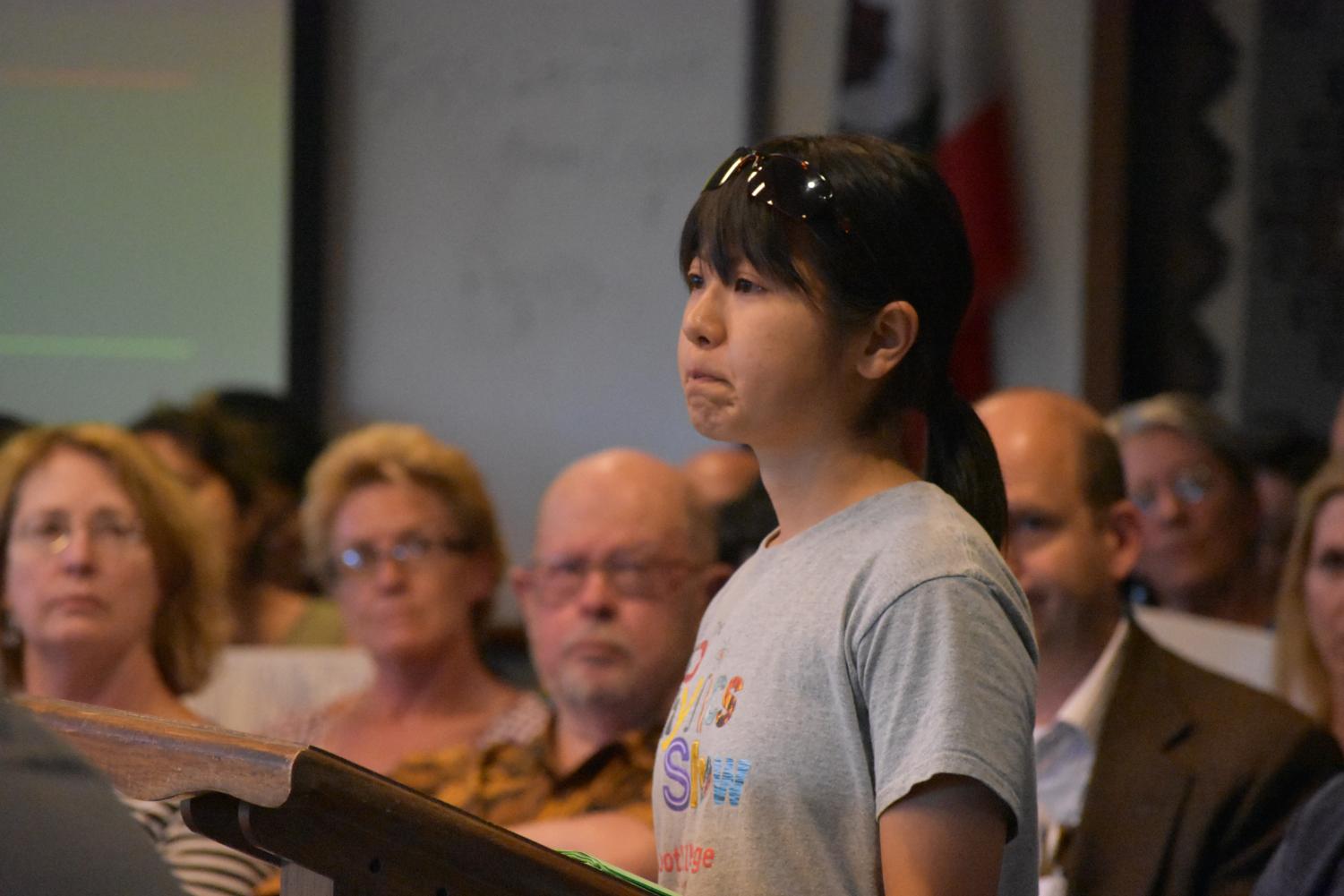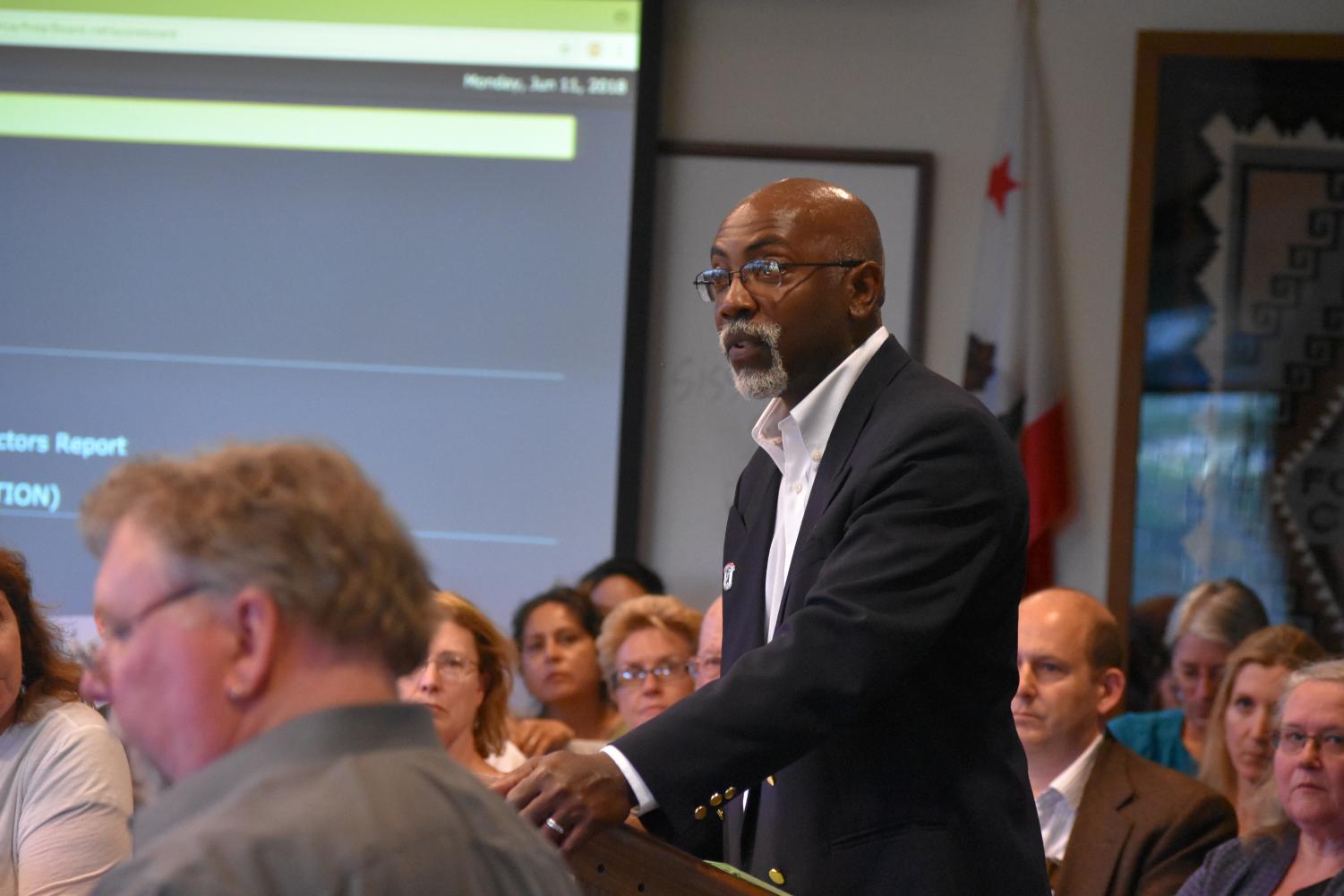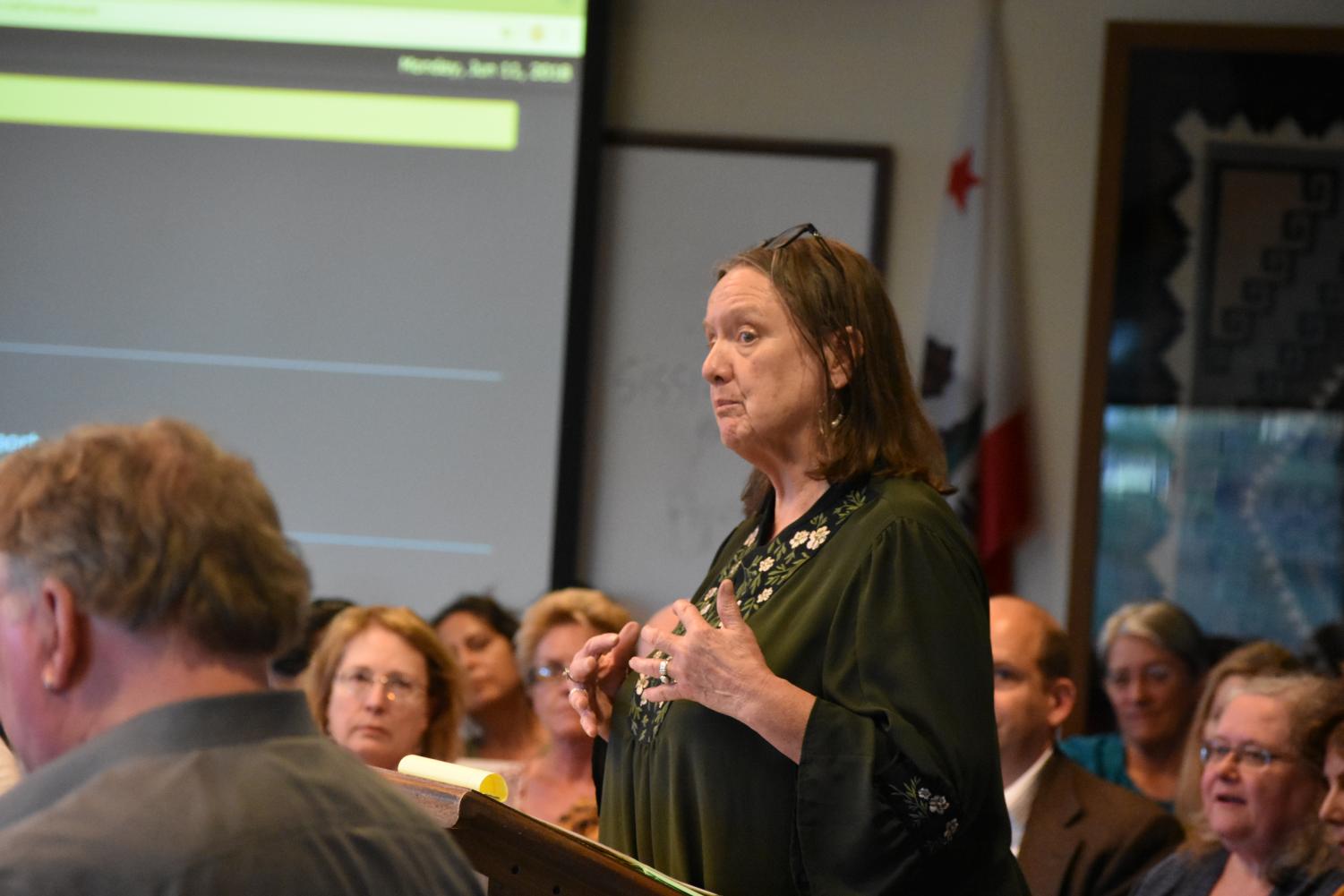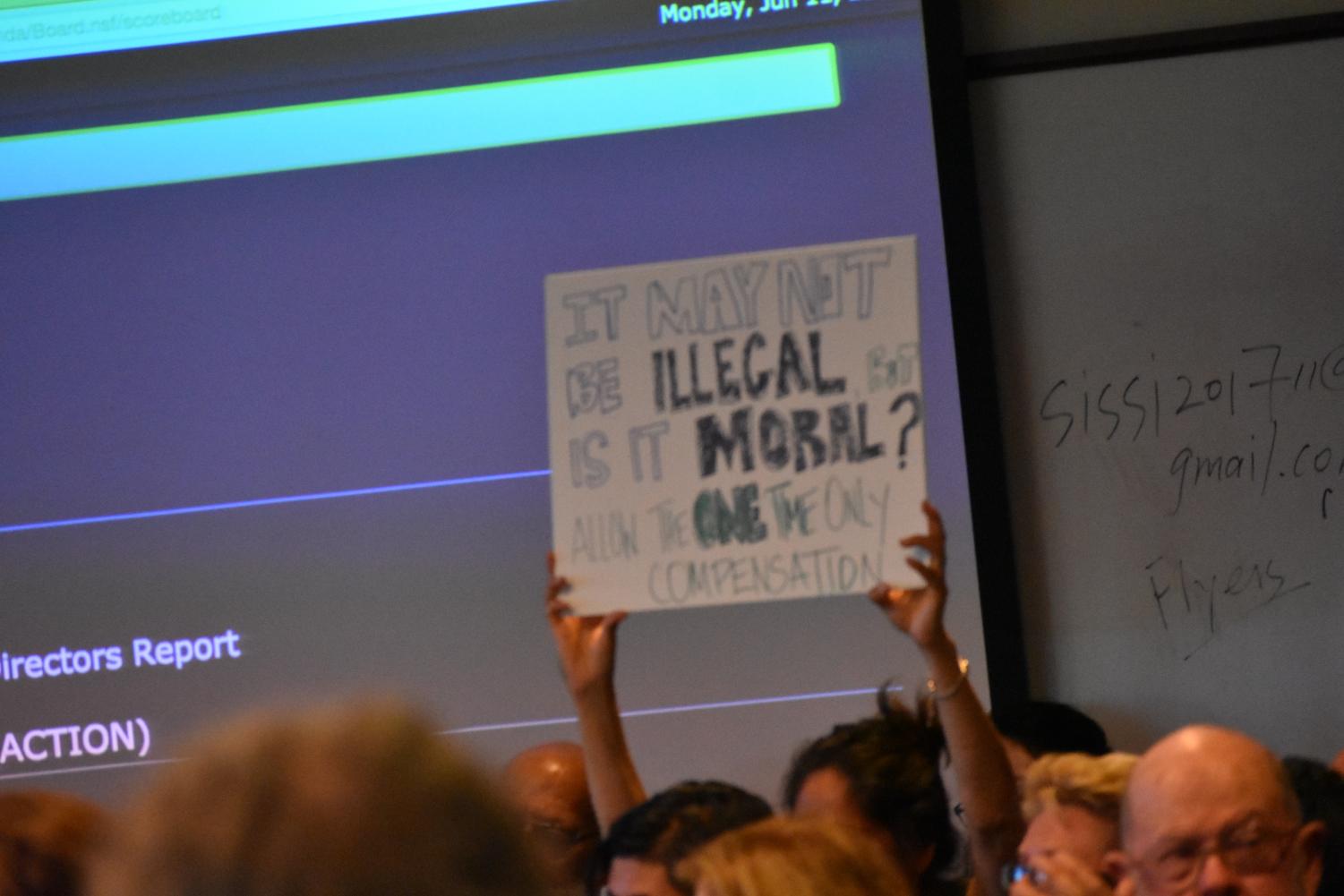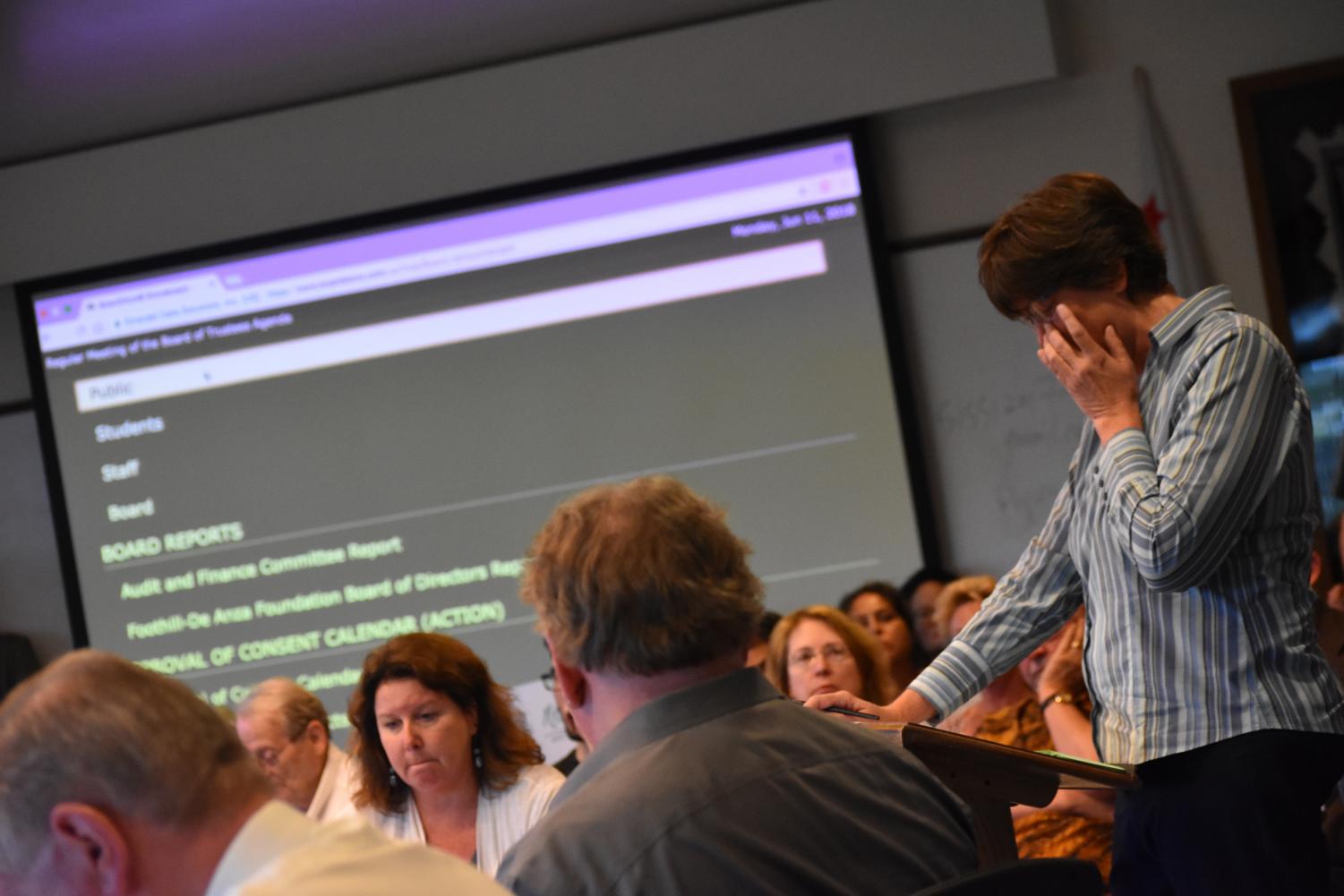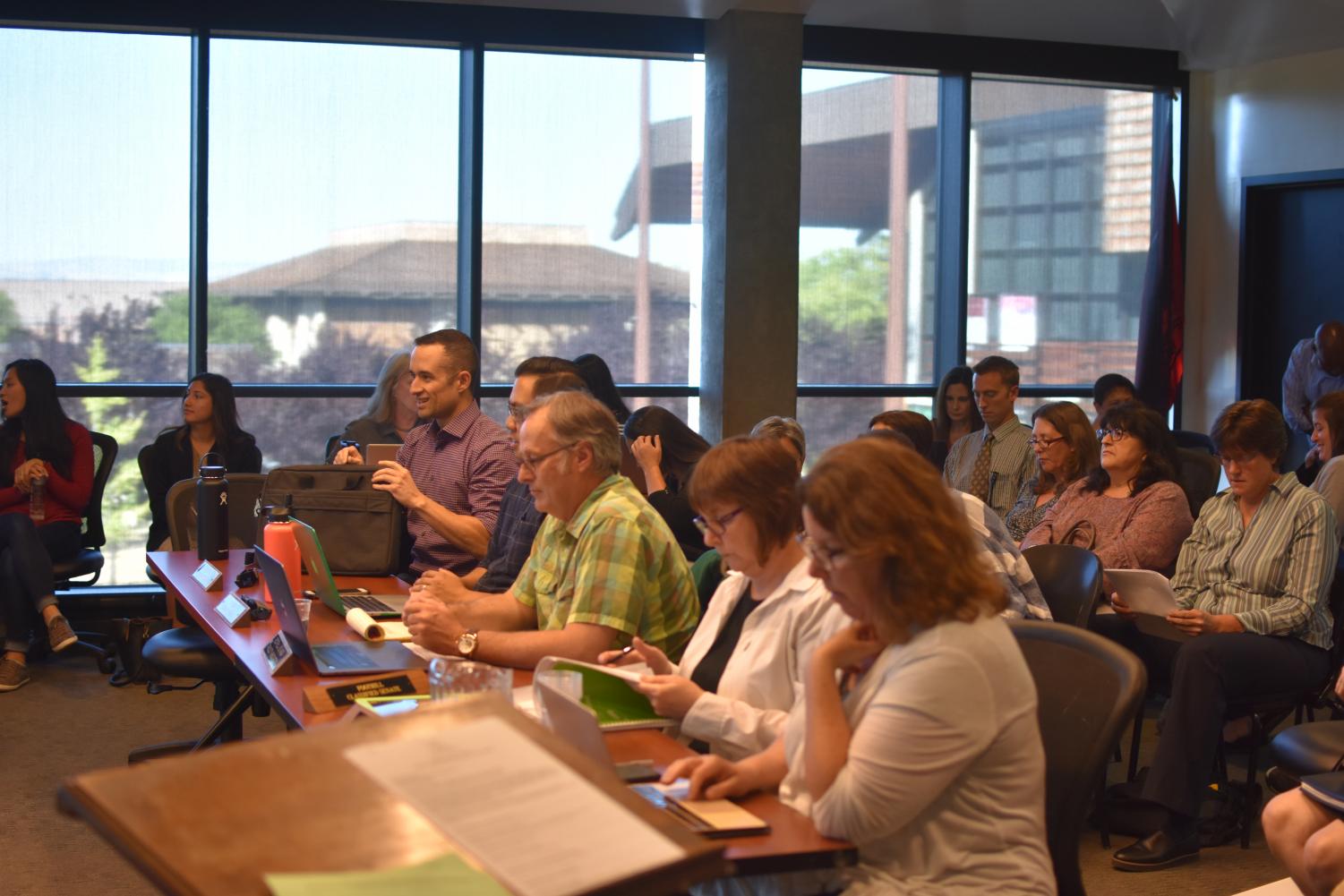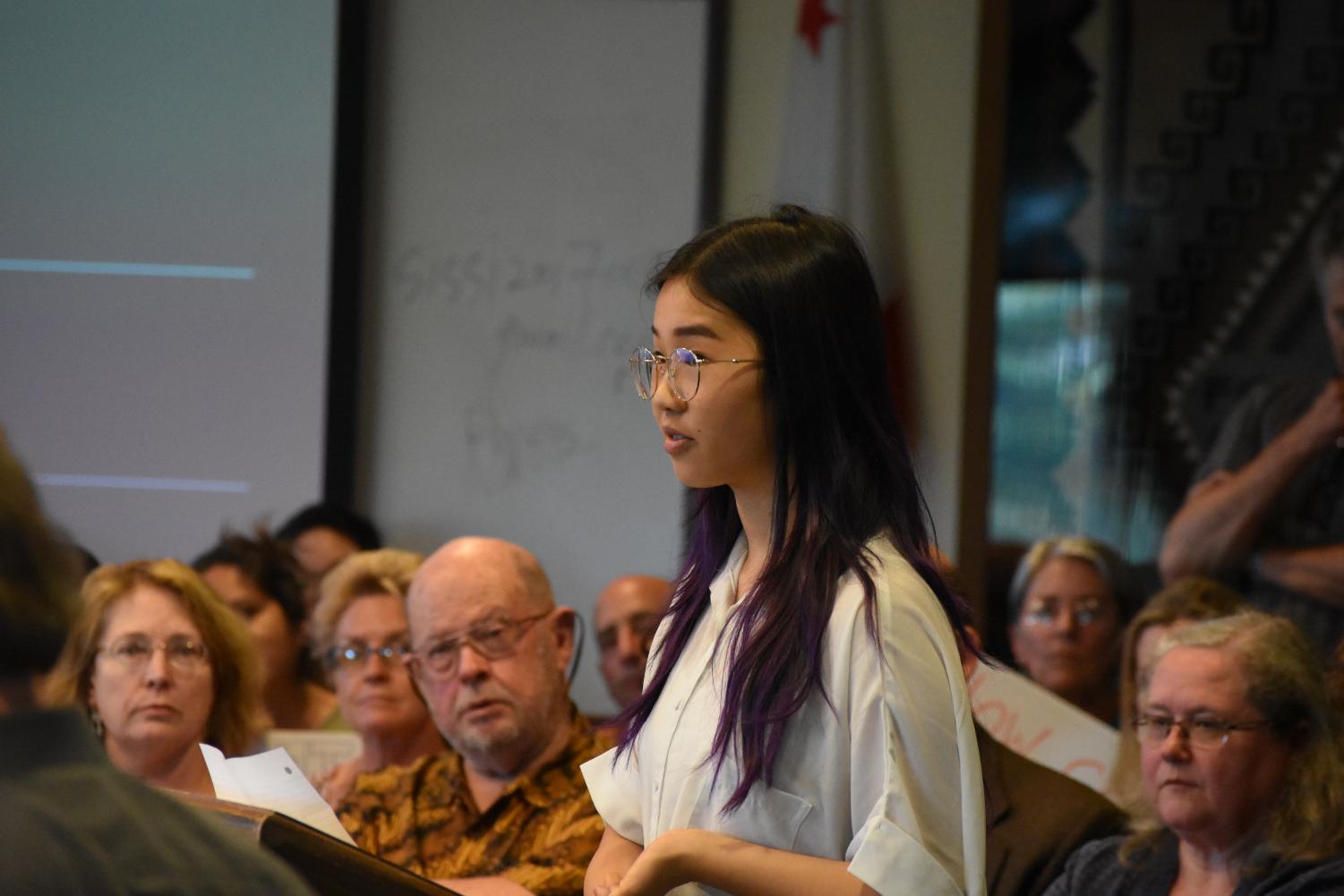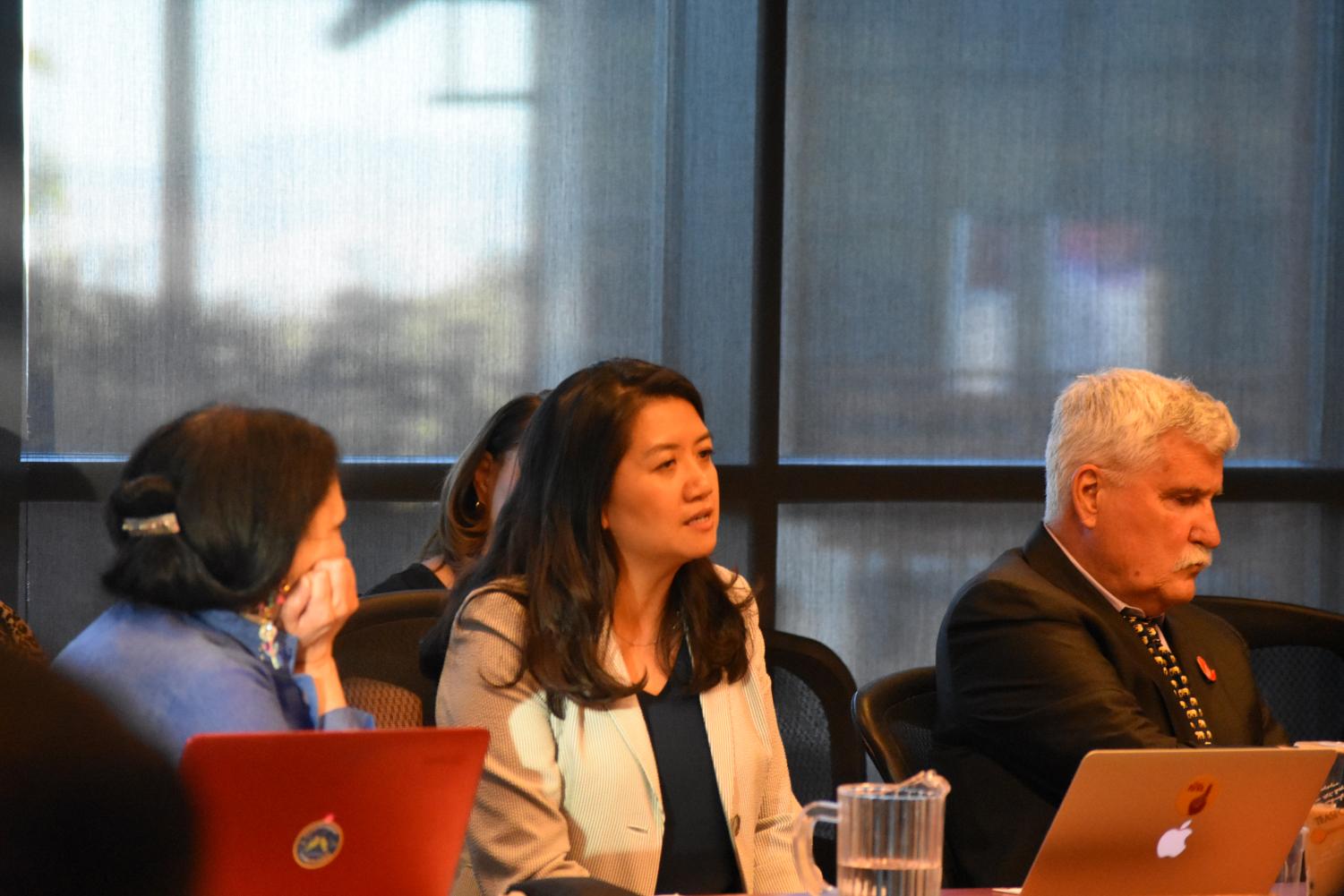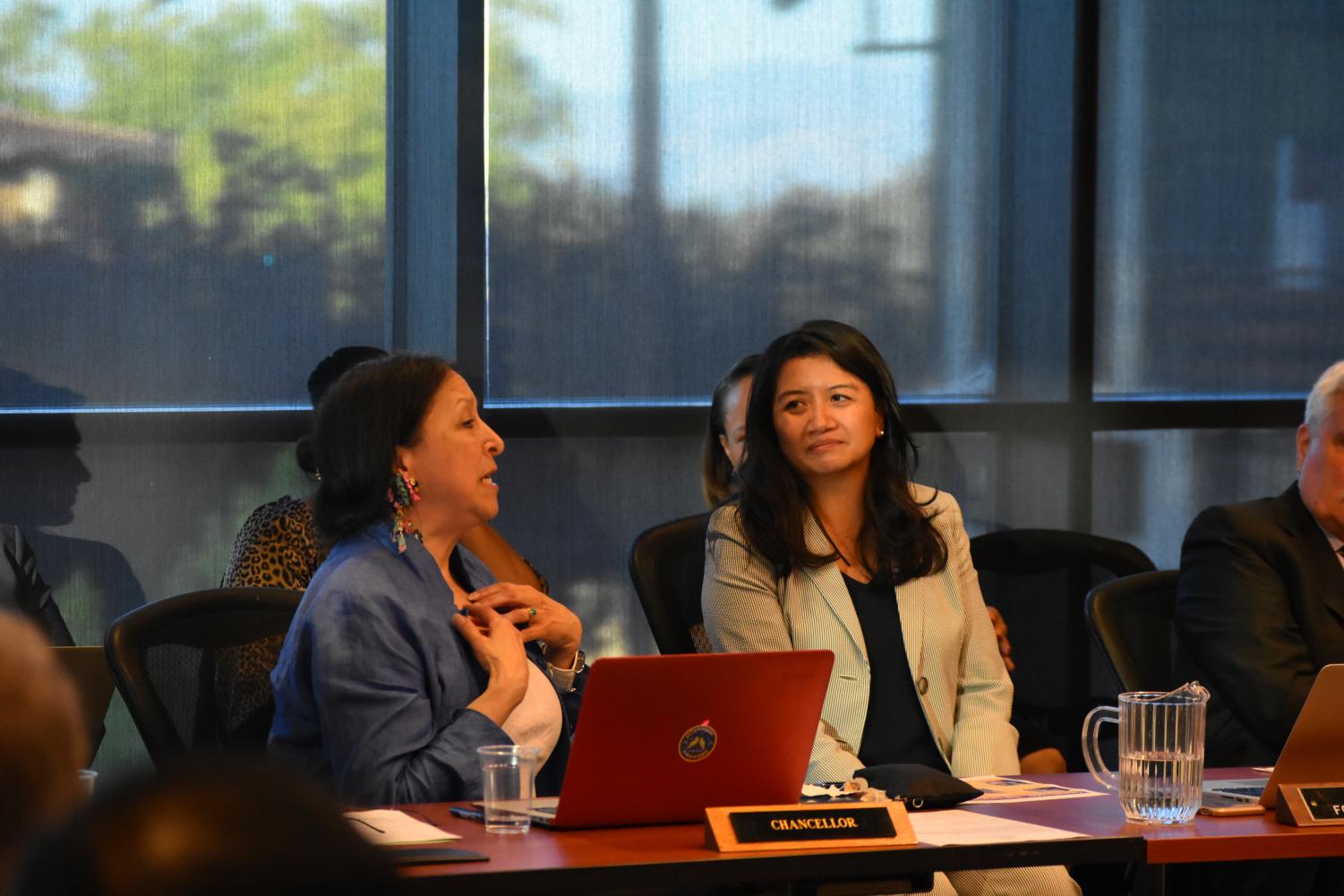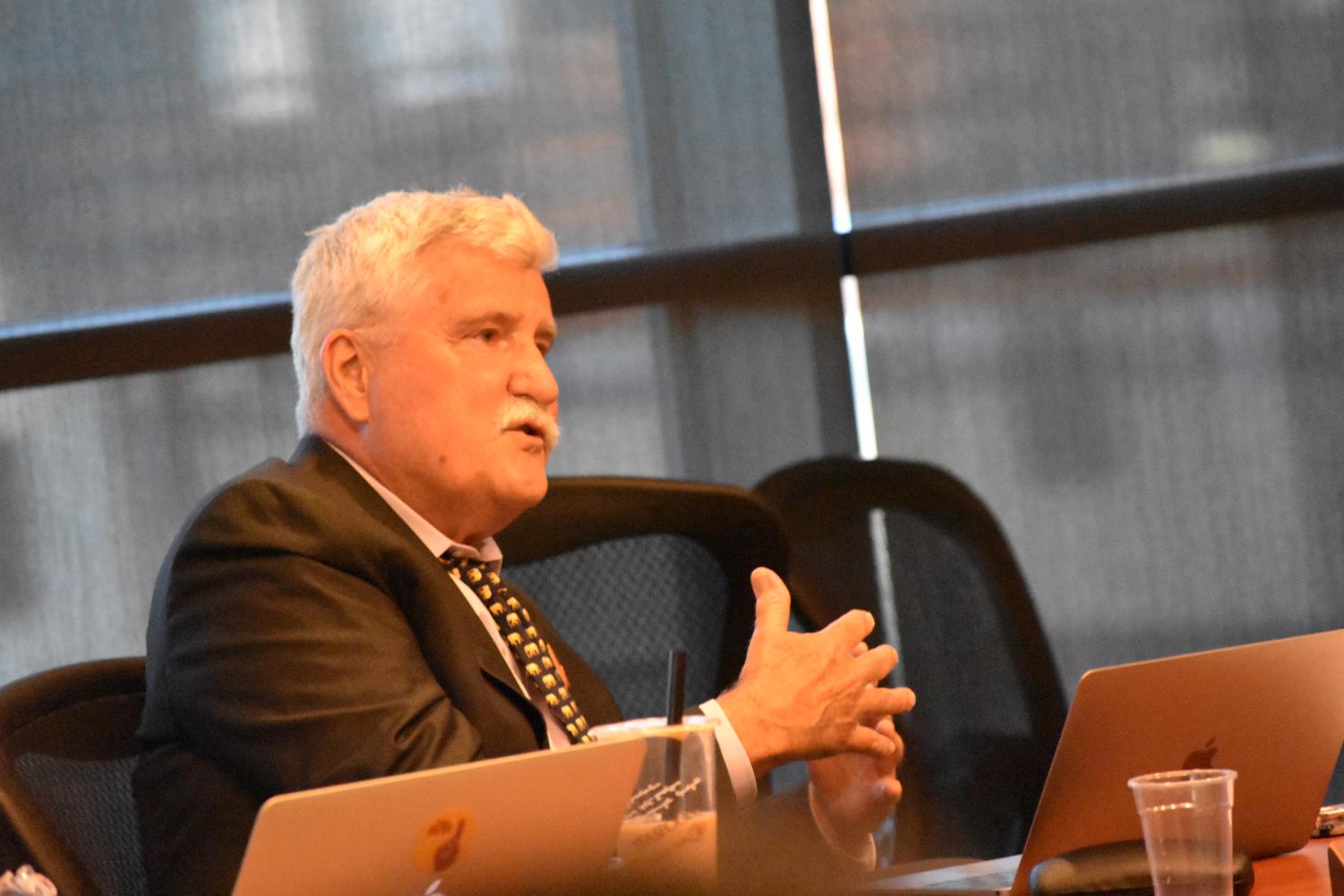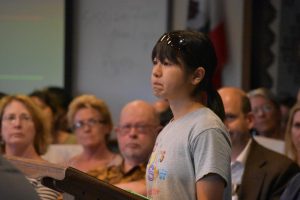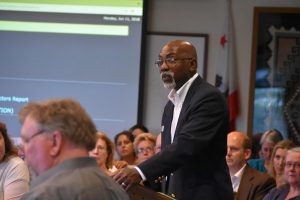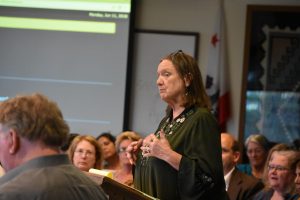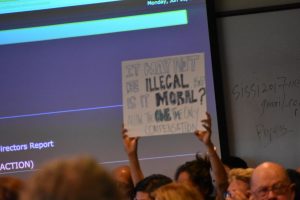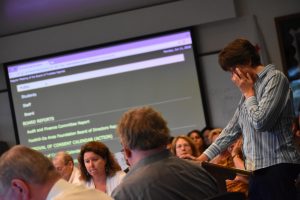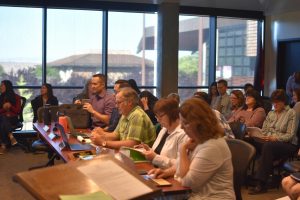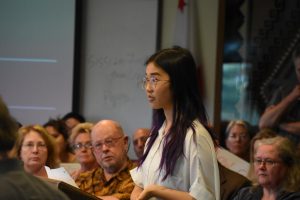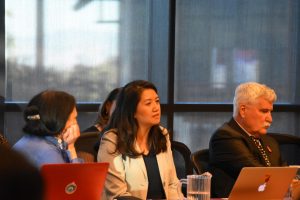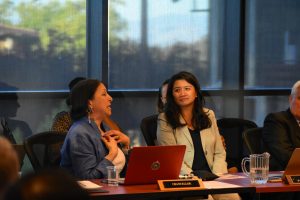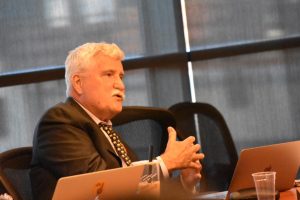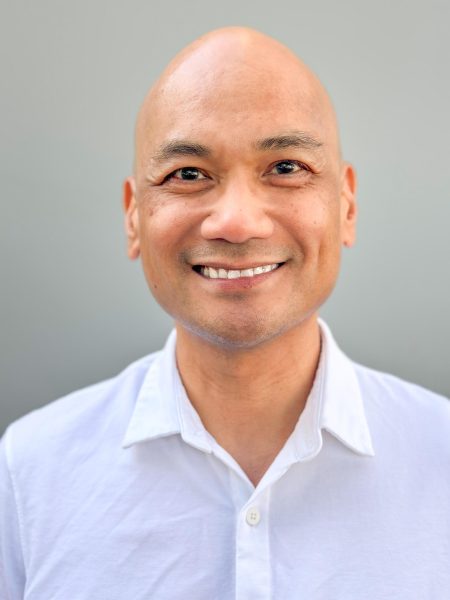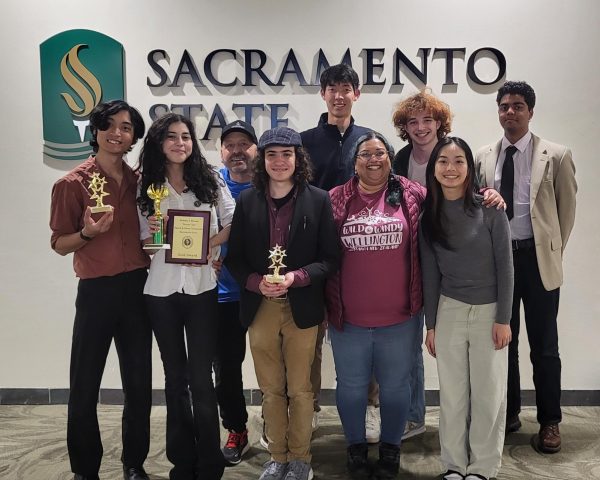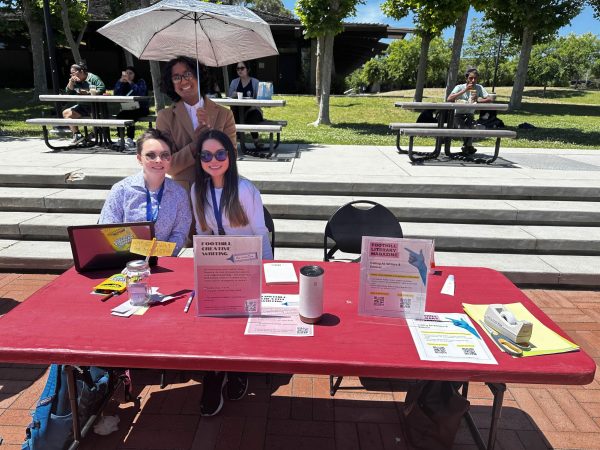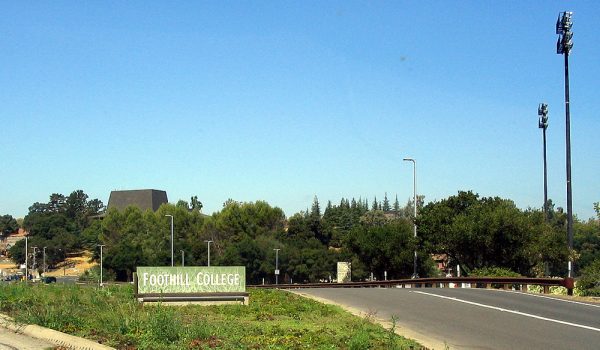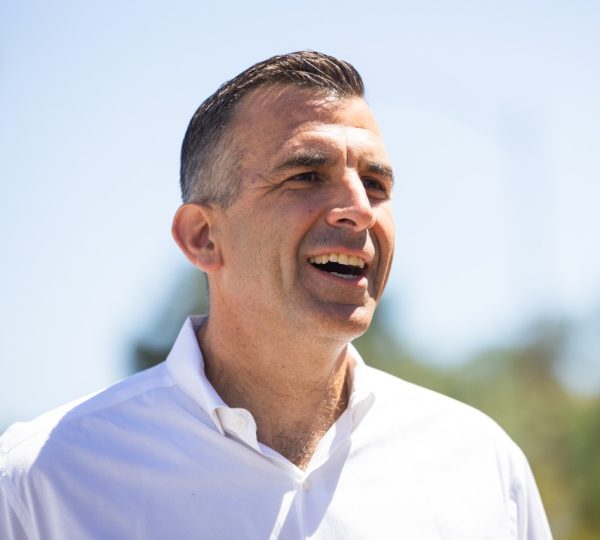The Story of Work-to-Contract
Bruce Swenson, president of the Board of Trustees, addresses the room.
“Fellow faculty,
At the negotiations session this afternoon, FA and the District reached a tentative agreement for compensation for 2017-18 and 2018-19. While all the details are not yet finalized, we are happy to announce that the work to contract is over.”
The previous email was sent out to faculty on Wednesday afternoon by Kathy Perino, chief negotiator for the Foothill-De Anza Faculty Association, announcing the end of the work-to-contract strike.
The message came almost exactly one month after the faculty association began work-to-contract in response to the district’s continued refusal to approve a one-time cost-of-living adjustment, or COLA, of $1.2 million in salary increases. Since the onset of the strike, students have had to cope with the widespread withdrawal of faculty from their roles as club advisors and inaccessibility outside office hours.
The faculty association hoped the protests would inspire a resolution, but the district refused to budge until the 2018-2019 California stage budget was finalized. A message posted on the district website stated, “it is the District’s position that it would be fiscally irresponsible to commit to increases in expenditures until we know the amount of state revenue the district can expect in 2018-2019.”
Tensions continued to rise in the weeks that followed, culminating at a district board meeting on Monday, June 11. The room was packed; every seat was taken, and people filled the hallway trying to catch a glimpse of the proceedings. The Foothill-De Anza Board of Trustees lined one end of the room, flanked by the FHDA college presidents and Chancellor Judy Miner. Opposite the board sat Faculty Association President Tim Shively and colleagues, backed by a diverse audience of faculty, staff, and students. Faculty were huddled close together and many were holding signs, one which read, “it may not be illegal but is it moral? Allow the one time only compensation.”
Board President Bruce Swenson was the first to address the elephant in the room. He launched into a statement from the board in response to emails the administration had been receiving regarding providing faculty with compensation. Swenson remarked that faculty were not fully-informed in accusing the district of being closed to the idea of providing salary increases.
“The district has communicated clearly it is willing to continue negotiations on salary increases and remains open to doing so,” Swenson said.
Swenson stressed the difficult position the district is in due to enrollment declines and the lack of clarity on the 2018-19 state budget, which was sent to Governor Jerry Brown last Thursday. He closed with the statement, “we look forward to working to serve our students, address our enrollment issues, and once the state budget has been finalized, to make informed decisions on our shared compensation concerns.” His words were met with complete silence from the other side of the room.
Following Swenson’s statement, the podium was opened to the public for comments. Over the next hour, faculty and students came up to tell their stories and were all received with thunderous applause and cheers of support from the audience.
Several students came forward in support of providing faculty with the one-time COLA they were asking for. Mako Mori, a student at De Anza College, outlined the chilling reality some of her previous part-time instructors have faced. According to Mori, some instructors have been forced to decide between eating or paying their mortgage. She described how her quality of education was negatively affected because “[instructors] had to worry about whether they could continue living off their salary.”
“If you really mean it when you say this is for the sake of students,” Mori concluded, “please do us a favor and give the faculty the 1.5 percent COLA.”
Foothill College student Mami Horikawa came forward representing 166 students who had signed a petition asking the administration to provide faculty with compensation. Horikawa passionately described her burning desire to see work-to-contract resolved and Foothill returned to its former state. Voice quavering, she emphasized her love for teachers and the school.
“I just don’t want to have this kind of situation,” Horikawa said. “I really feel like I lost a connection with faculty, and it’s really upsetting.”
Along with students, at least 10 faculty members stepped forward throughout the evening to express their opinions and tell their stories, including Perino. She called into question the district’s refusal to provide such a small amount of money — a decision she found “insulting.” She admitted to being perplexed by the district’s response to work-to-contract, as the financial ramifications of the protest, including enrollment losses due to not accepting late adds to summer classes, outweigh the amount faculty are asking for. “Is delaying the settlement worth putting that at risk?” Perino questioned.
On a personal level, Perino showed extreme concern regarding the decision-making processes that went into the formation of the budget cuts. She felt the guiding principles for the decisions were violated, including, “transparency, defined as open communication and reasonable timing when sharing information, and shared pain.” She cited both the decision to shift the cuts from 40 percent workforce and instruction to 85.5 percent, and the decision to increase the amount of vacant full-time faculty positions from five to nine. Perino held that excluding faculty from these important budget decisions blatantly disregarded the district’s standards.
In an emotionally raw moment, Perino took several sharp breaths to compose herself and stared straight at the board. “If you can’t tell, this matters!” she emphasized. The board, college presidents, and chancellor, all watched on silently.
Following the plethora of impassioned student and faculty testimonies, the college presidents and district chancellor carried the tall task of replying. Foothill President Thuy Nguyen stressed the importance of addressing the faculty’s concerns while remaining mindful of the revenue side of the equation, citing recent efforts Foothill has taken to increase enrollment.
“I’m hoping that we have not created such a schism that we cannot also focus on the revenue side,” Nguyen maintained.
Chancellor Judy Miner had kind words for Perino’s efficacy as a negotiator and expressed hope that negotiations would be resolved soon, indicating that the board had scheduled a special meeting the following Monday to discuss the issue.
Most notable was the response of Brian Murphy, the retiring president of De Anza College. Murphy expressed regret at the circumstances surrounding his final board meeting, admitting to feeling “hollow.” He strongly criticized governor Jerry Brown and the California Community College Chancellor Eloy Oakley for their handling of state funds.
“The systematic underfunding of the community college is the context in which this happened,” Murphy stated. “Not last weeks budget news, not this weeks enrollment problem.”
Just like that, the conversation regarding faculty compensation was over. As the audience moved towards the exit, there was still an acute feeling that not much had been resolved. The only thing left to do was wait for the district’s response to stage budget developments.
Fortunately, students and faculty didn’t have to wait long. Two days after the meeting, Miner sent out a message to faculty and staff confirming that “the budget agreements reached on June 8…have now provided a clearer picture of state funding we can expect for 2018-19.” Included in the message was a tentative budget projection featuring a temporary three year COLA. A week later, on Wednesday, Miner forwarded a message from Perino and district negotiator Dorene Novotny announcing that a resolution had been reached, and work-to-contract had ended.
Perino explained in an interview that both parties had reached a tentative agreement, which they will vote to ratify in September. The two-year agreement offers a five percent one-time salary increase to all faculty — part-time faculty would receive a salary increase based off of their 2017-18 earnings, and full-time faculty would receive a salary increase based off of their 2018-19 earnings.
Although a resolution was agreed upon and work-to-contract has concluded, Perino admitted that faculty are still concerned by the district’s levels of transparency and communication surrounding budget decisions. She stated, “I think that the senior administration is aware of the concerns from faculty. We’re just going to have to wait and see how things progress, whether anything changes in their understanding of what shared-governance means.”

